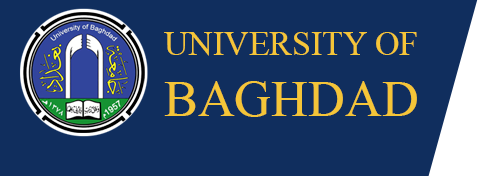First: Introduction
As a leading institution of higher education in Iraq, the University of Baghdad aims to achieve academic excellence and enhance the quality of its educational outcomes in alignment with international standards. In this regard, the university seeks to adopt the Bologna Process standards to ensure the quality of higher education, foster an inspiring learning environment, produce graduates well-prepared for the labor market, and contribute to the sustainable development of the country.
Second: Vision, Mission, and Objectives
- Vision: Establish the University of Baghdad as a globally recognized institution known for its academic excellence, high-quality outcomes, and contribution to sustainable development.
- Mission: Provide high-quality education through a student-centered approach and offer community services that contribute to the advancement of Iraqi society.
Third: Objectives
- Develop academic programs aligned with labor market requirements and international standards.
- Enhance the competencies of faculty members and researchers.
- Improve the environment of learning, teaching, and research.
- Strengthen international cooperation and academic partnerships.
- Ensure the quality of education and learning by implementing Bologna Process standards.
Fourth: Quality Assurance Principles
- Transparency: Uphold transparency in all quality assurance processes.
- Participation: Encourage the involvement of all university community members in the quality assurance process.
- Continuous Improvement: Commit to the ongoing enhancement of the quality assurance system.
- Autonomy: Ensure the independence of quality assurance official parties away from academic administrations.
- Equity: Apply quality standards fairly and impartially to all colleges and programs.
Fifth: Purposes of Quality Assurance
A. Academic Program Quality
- Develop curricula that meet local labor market demands and international standards.
- Adopt the European Credit Transfer and Accumulation System (ECTS).
- Provide flexibility in the selection of study paths.
B. Teaching Quality
- Enhance the efficiency and competence of faculty members through training and development programs.
- Encourage the use of modern teaching methods.
- Conduct regular and periodical evaluations of teaching materials.
C. Student Services Quality
- Provide comprehensive student services.
- Streamline registration and graduation processes.
- Offer academic and career counseling for students.
D. Infrastructure Quality
- Provide suitable infrastructure for education and scientific research.
- Upgrade educational environments, including classrooms, laboratories, studios, workshops, fields, sports facilities, theaters, and so on.
- Offer access to electronic libraries.
Sixth: Quality Assurance Mechanisms
- Internal Self-Assessment: Conduct regular self-assessments of all services and programs.
- External Evaluation: Engage external experts to evaluate the quality of programs and institutions.
- Monitoring Quality Standards: Track developments in the formulation and implementation of clear quality assurance standards across all areas.
- Performance Indicators: Measure achieved progress through the application of quality assurance indicators in the Bologna Process.
- Data Management System: Develop an integrated system for managing data and information to collect and analyze data related to quality assurance.
Seventh: Organizational Structure for Quality Assurance
- Central Quality Assurance Committee: Responsible for implementing quality assurance policy at the university level.
- College Quality Assurance Committees: Responsible for implementing quality assurance policy within each college.
Conclusion
Adopting the Bologna Process standards is a significant step toward achieving academic excellence at the University of Baghdad. Through the implementation of this policy, the university will enhance the quality of its educational outcomes and strengthen its position as a center for education and scientific research in the region.

